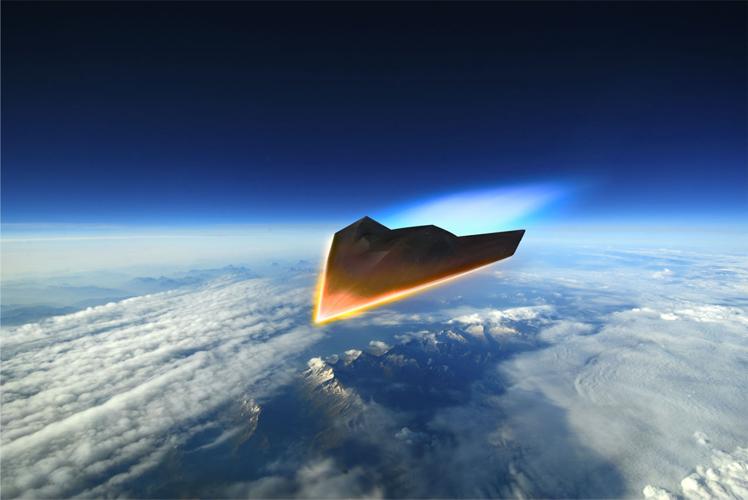This changes everything.
After decades of economic malaise, Tucson has seemed to be perking up the last couple of years. Roads getting fixed, people getting jobs, vacant buildings getting filled, and other buildings going up.
Now with the announcement of Raytheon Missile Systems’ massive expansion, it’s clear the era of malaise is over. Tucson’s ascendance is on.
For this, we can thank in part the groundwork laid by our local governments as well as the incentives offered by them and the state government. They’ve worked. But the apparent success of those incentives shouldn’t blind our representatives to the likelihood of their overuse — as seen in another incentive deal underway now for another Fortune 500 company, Monsanto.
Raytheon’s decision is so significant because it is a vote of confidence by our biggest private employer, the one that gives the fattest paychecks and the best benefits in town. Remember all those rumors about Raytheon leaving that cropped up after the company moved some work to Alabama in 2010? Forget them. The opposite is happening.
It’s also significant because Raytheon’s decision is an endorsement of the approach local officials have been taking to economic development. Since their effort to lure Tesla here in 2014, they’ve worked especially well together. For Raytheon, Pima County has moved roads, bought buffer property, established an aerospace corridor — not without criticism — and it’s working.
In addition, Raytheon’s decision doesn’t just give us the nearly 2,000 Raytheon jobs: Other employers are likely to join the mix in the aerospace corridor, creating a positive-feedback loop.
Finally, Raytheon and other recent recruits are offering high-paying jobs. These aren’t the low-wage call-center positions we’ve all grown tired of landing.
Friday’s announcement suggests Tucson is finally “turning the corner,” said economist Dennis Hoffman, director of ASU’s L. William Seidman Research Institute.
“That’s the kind of momentum that we’ve been waiting to see in Arizona for a long time,” he said.
(The institute, by the way, does contract work for Raytheon Missile Systems.)
The recruitment of Raytheon’s expansion and of other companies like Caterpillar and Vector Space Systems make a case for government activism, including tax incentives, in the name of economic development.
Since we lost the jobs to Huntsville in 2010, Pima County taxpayers have put about $33 million toward making Raytheon more comfortable at its plant near Tucson International Airport.
Among the key items: Buying 382 acres of buffer land for $5.9 million, building the relocated Aerospace and Raytheon Parkway for $12.7 million, and moving electrical lines away from Raytheon for $3.9 million.
But that’s not all it took. While Raytheon signaled it wanted that public spending, the company also wrung additional incentives out of taxpayers for this expansion. Among those: Pima County is endorsing the plant’s designation as a foreign trade zone for 10 years. That reduces the company’s property tax rate from 18 percent to 5 percent.
So, we’re getting a huge benefit from Raytheon’s expansion here, one that we’ve helped pay for with $33 million in infrastructure improvements, and we’re also cutting their taxes. The upshot for county taxpayers will be that Raytheon ends up paying a higher share of the county’s tax burden, and we get thousands of high-paying jobs, but the company’s tax burden is not as high it would be if they were paying the usual tax rate.
As Jim Manley of the Goldwater Institute put it to me: “Where is the end of this? You can’t build a sustainable economy based on individual corporate subsidies, because you eventually run out of the taxpayers’ money.”
Manley has become involved with Pima County’s incentives programs since suing the county over the deal with World View Enterprises, a near-space balloon company for which the county is building a $15 million headquarters to be paid back over 20 years. In that deal and others, he’s pointed out that it is questionable whether the incentives were even necessary.
World View, for example, was under contractual obligation with the Arizona Commerce Authority to stay in the state, though it could have paid its way out of that contract for a few hundred thousand dollars. And it received much more valuable offers from other states but decided to stay here, suggesting maybe the company’s owners didn’t really want to leave.
Raytheon was always going to drive a hard bargain. And its local significance made it a hard company to bargain against. One little threat, and we naturally flinch. But you wonder how little they really would have accepted after we built the buffer and new road for them. Was the tax break necessary?
Elected officials are not in a position to drive a hard bargain. Especially in an area like Tucson, they need wins that they can point to as evidence they’re helping the economy. If it takes incentives, they’ll do it unless the voters turn against these special deals.
That could be happening in the case of Monsanto. The company, crucially, bought its property for $3.74 million on Oct. 12 — before being assured of a foreign trade zone designation. Pima County will consider endorsing that designation on Tuesday.
“They’ve already purchased this land,” Supervisor Richard Elias told me. “This is not an incentive for them to come to Pima County at all. This is just a tax break.”
The company will hire only around 50 people, but its project will significantly increase the tax base over the unimproved farm land it previously was. That’s how County Administrator Chuck Huckelberry justifies doling out incentives.
“That company is investing $100 million in seven acres and becoming the single largest taxpayer in the Marana school district,” Huckelberry noted.
But even then, government meddling is reducing the potential benefit to the Marana district’s taxpayers. As my colleague Murphy Woodhouse discovered, the district accepted a one-time $500,000 payment and a lower tax rate for Monsanto instead of requiring the company to simply pay the full tax rate that the district could have charged.
That saved the company $3.4 million over 10 years — money that other Marana Unified taxpayers will instead be paying.
So, the great news is that incentives have helped the Tucson area’s economy turn around decisively. But the bad news is we’re still throwing incentives at seemingly whatever compelling company shows up, even if they don’t seem to require them.
In a sense, the incentives that have made our city a growing business hub should also be making themselves obsolete. A place this attractive and dynamic is in a position to drive a harder bargain.





